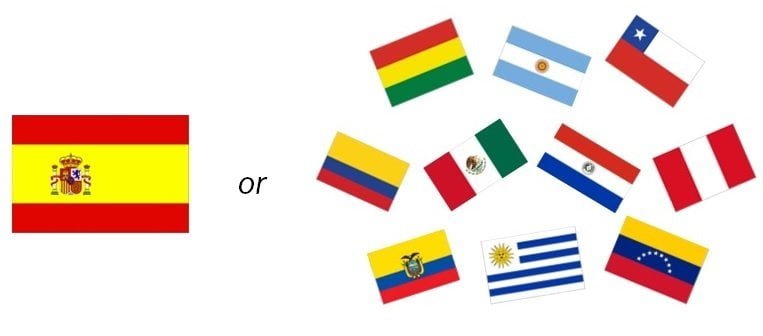International Spanish or local Spanish?

Lately, we’ve been receiving more and more requests for International Spanish (also known as universal or neutral Spanish). Is it the best way to boost your brand internationally or should you still opt for localised Spanish?
What exactly is it?
- International or universal Spanish is a type of Spanish, which does not include any localisms or colloquialisms. That means a broader range of Spanish speakers understand it, whether they’re from Madrid or Buenos Aires!
- It tends to be used for formal documentation as the more formal level of Spanish, the more universal it is since it doesn’t include as many colloquialisms.
- The content, especially terminology, is neutral so that it’s not directed towards any specific cultures.
- The grammatical structures are simple to avoid confusion.
- As an example, in English, the words zip (British) and zipper (American) will be understood universally but words like tap (British) and faucet (American) may need a neutral version or explanation alongside them.
Examples of International Spanish
| English | Spanish (Spain) | Spanish (Latin America) | International Spanish |
| Apartment | Piso | Departamento | Apartamento |
| Car | Coche | Carro | Automóvil |
| Mobile Phone | Móvil | Celular | Teléfono móvil |
What are the advantages of International Spanish?
- You can reduce translation costs as you’ll only require your documentation or marketing collateral translating into one type of Spanish.
- You’ll have guaranteed consistency across Spain and Latin America.
What are the disadvantages of International Spanish?
- Some words or phrases are ‘lost in translation’ if they’re made neutral.
- It’s not recommended for stylistic copy such as tourism brochures as you could lose some of the flair or charm of the original.
Things to consider before requesting translation
- What type of content do you require translating? Creative and marketing texts need to be localised much more, but technical and financial texts can be international.
- Who is your target audience? What is their level of understanding of your product/service?
- Will there be any cultural differences? Not just language issues.
So, should you opt for International Spanish or local Spanish?
Ask your language service provider for advice before you request the translation. International Spanish may work for your products/services if your copy is quite straightforward, however, if it’s very stylistic you’re more likely to get a better response or ROI by having your translations localised for each of your target markets.
So, are you still unsure about whether you need International Spanish or local Spanish? We’d love to hear from you.







